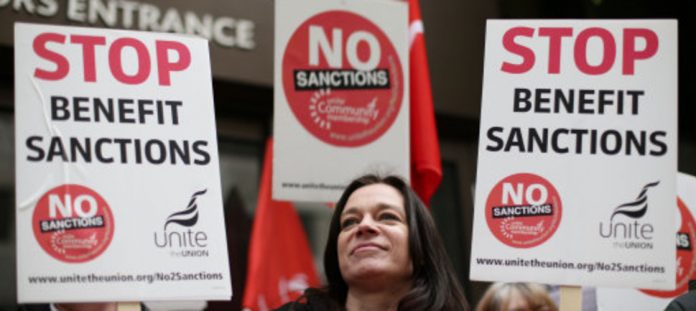Sanctions within the social security system is largely ineffective and in some cases pushes people into poverty and crime, a major study led by the University of York has found.
Supporters say the use of sanctions and support is an effective way of weaning people off benefits and into paid work, or addressing anti-social behaviour.
However, critics argue that behavioural conditionality is largely ineffective in promoting paid employment and personal responsibility, and is likely to exacerbate social exclusion among disadvantaged populations.
The WelCond project, led by the University of York and involving the Universities of Glasgow, Sheffield, Salford, Sheffield Hallam and Heriot-Watt, analysed the effectiveness, impact and ethics of welfare conditionality from 2013-2018.
The findings are based on repeat longitudinal interviews undertaken with 339 people in England and Scotland and drawn from nine policy areas, including Universal Credit, disabled people, migrants, lone parents, offenders and homeless people.
The study found that there was little evidence welfare conditionality enhanced people’s motivation to prepare for or enter paid work, that some people pushed into destitution, survival crime and ill health and that Benefit sanctions routinely triggered profoundly negative personal, financial and health outcomes.
The study also concluded that the mandatory training and support is often too generic, of poor quality and largely ineffective in enabling people to enter and sustain paid work
The report quotes a homeless man who says he was forced into drug dealing due to welfare conditionality, while a disabled woman said she “sunk into depression” as a result of benefit sanctions.
The authors of the report say it is time for a “comprehensive review” of the use of welfare conditionality.
Professor Peter Dwyer, from the University of York’s Department of Social Policy and Social Work, said: “Our review reveals that in the majority of cases welfare conditionality doesn’t work as intended and we have evidence it has increased poverty and pushed some people into survival crime.
“What also became apparent was people were focusing on meeting the conditions of their benefit claim and that became their job – it is totally counter-productive.
“You are just making people do things to meet the conditions of the claim rather than getting them into work.”
“Successive governments have used welfare conditionality and the ‘carrot and stick ’ it implies to promote positive behaviour change.
“Our review has shown it is out of kilter, with the idea of sanctioning people to the fore. It is more stick, very little carrot and much of the support is ineffective.”







